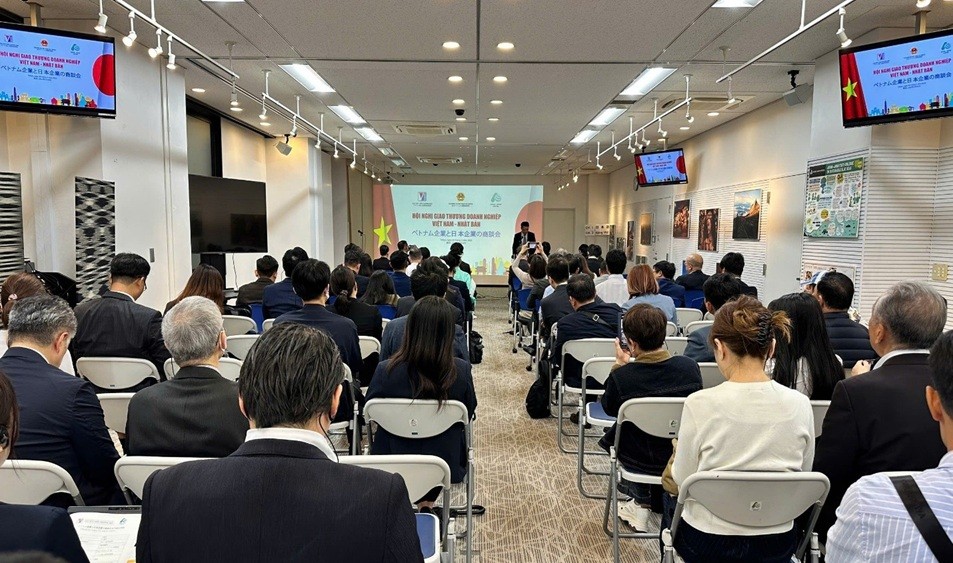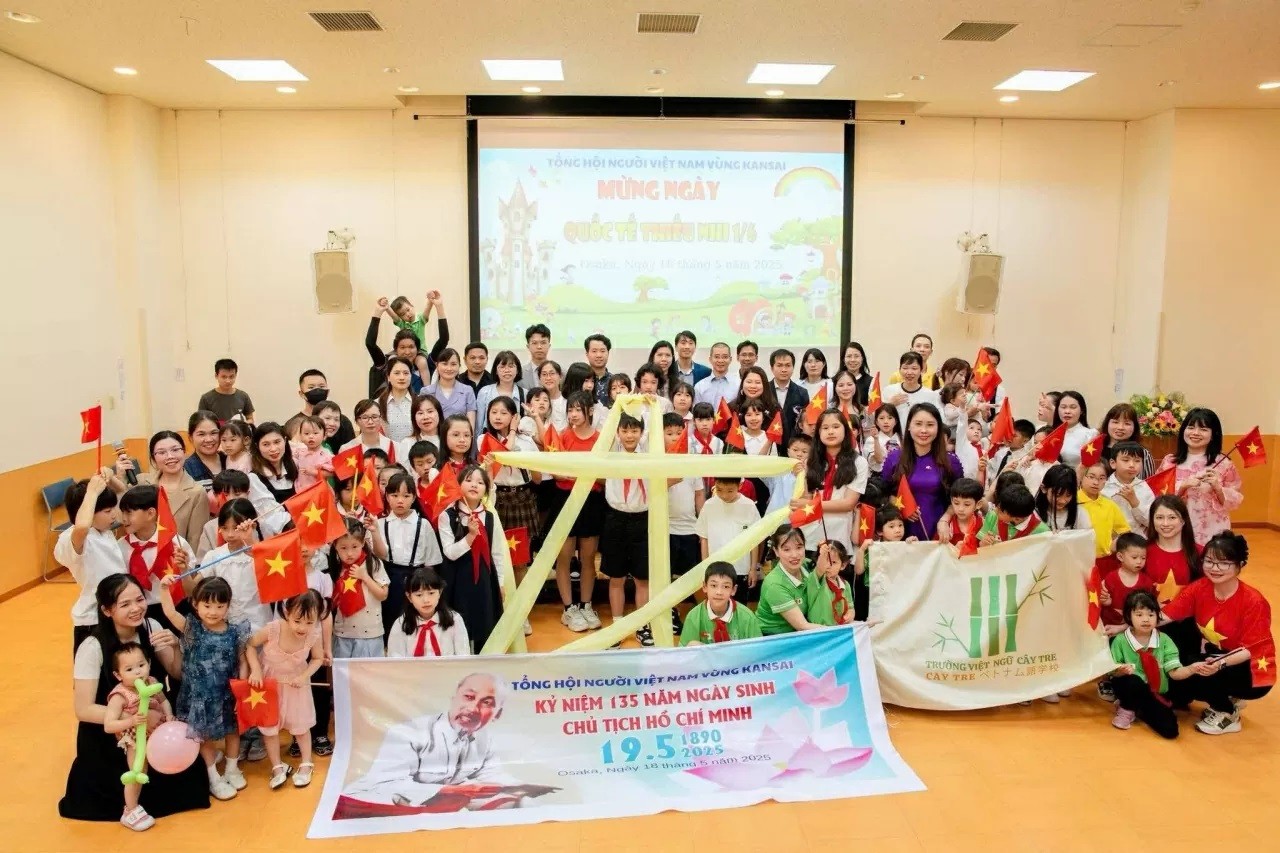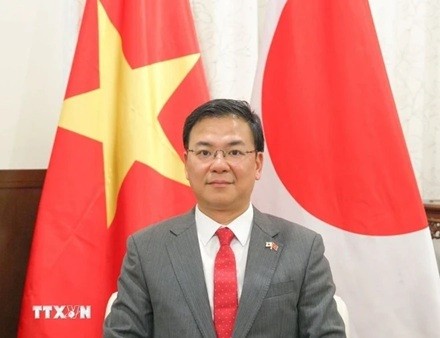JICA Continues to Support Vietnam's Plans for Circular Economy
The goal of the workshop is to share the final outcomes of JICA’s “Survey on Circular Economy (CE) in Vietnam” which started in January 2022.
| JICA had been involving in waste management through activities such as promotion of 3R (Reduce, Reuse, Recycle) and source separation in Vietnam. As of May 2022, there are 58 on-going JICA projects in Vietnam to improve water supply and drainage system, strengthen disaster prevention capability, establish environmental management system, support rural development, health care, human resource development in supporting industries, etc. |
“It is now the high time to elevate our cooperation with MONRE to establish a robust legal foundation and policy directions to enable CE models in Vietnam. This survey aims not only to support ISPONRE to develop a framework for the National Action Plan on CE but also to provide a bird-eye view of the legislative system and ongoing projects on CE in Vietnam. In that respect, the survey helps identifying gaps for our future technological cooperation projects with MONRE," stated Mr. Murooka Naomichi, Senior Representative of JICA Vietnam Office at the opening remark.
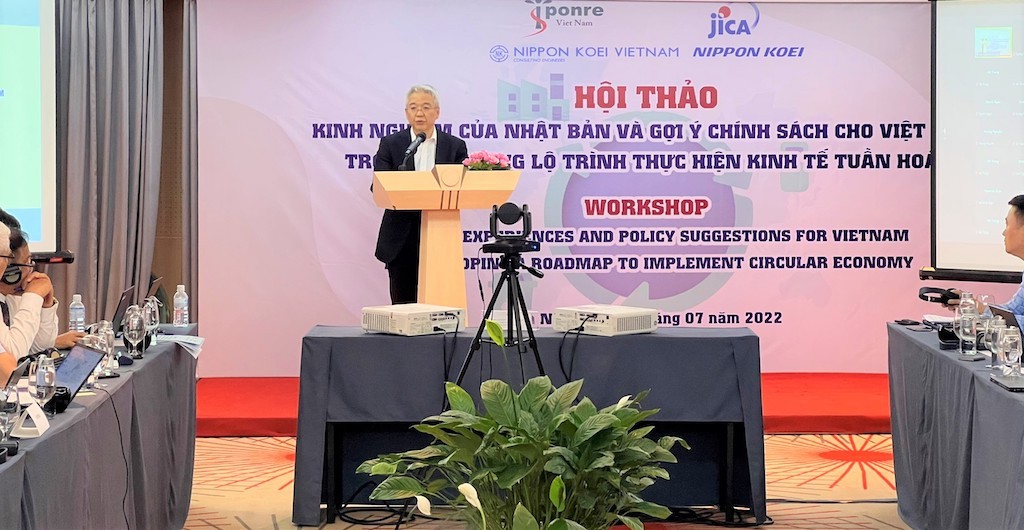 |
| Mr. Murooka Naomichi, Senior Representative of JICA Vietnam Office gave the opening remark. (Photo: JICA) |
In the first part of the workshop, Research Team Leader Tomoyuki Hosono and Deputy Team Leader Koki Takano presented their study findings along with recommendations for MONRE/ISPONRE to develop the National Action Plan on CE and the Government of Vietnam to decide on the roadmap for implementing CE in Vietnam.
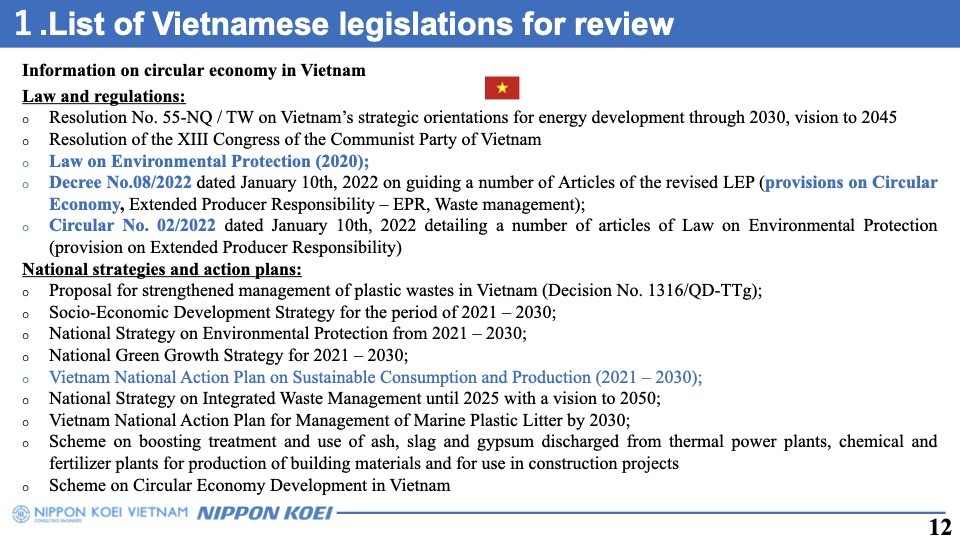 |
| Photo: Presentation on Survey by Tomoyuki Hosono and Koki Takano |
Dr. Mai The Toan, Vice President of ISPONRE affirmed that the results of JICA’s survey would be very useful for their upcoming formulation of the National Action Plan on CE. He leaded the discussion where local and foreign delegates from state agencies, research institutes and companies gave comments and questions for the research team on the draft framework of the National Action Plan on CE for Vietnam, which was regulated in the revised Law on Environmental Protection (LEP) adopted in 2020.
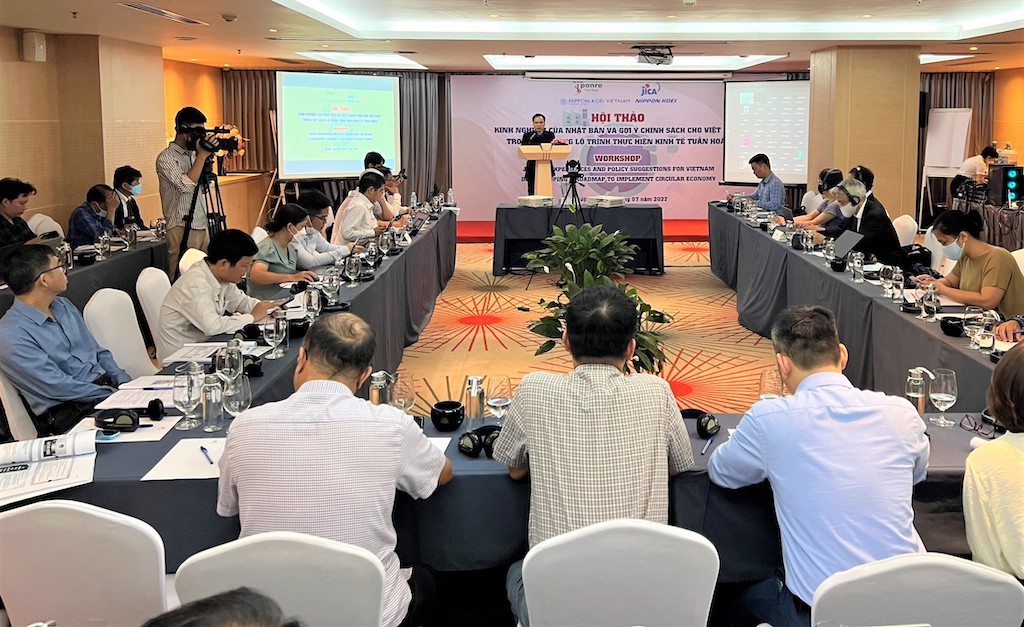 |
| The workshop is hosted by The Japan International Cooperation Agency (JICA) in cooperation with the Institute of Policy and Strategy in Natural Resources and Environment (ISPONRE) under the Ministry of Natural Resources and Environment of Viet Nam (MONRE). (Photo: JICA) |
The second presenter - Mr. Adachi Ichiro, JICA’s Environmental Management Advisor explained the history of CE policy development and the traditional spirit of “Mottainai” which embraced the concept of CE. Based on the experiences of Japan in developing the CE policy framework which centers on the concept of a Sound Material-Cycle Society in 1999 and the CE vision 2020, Mr. Adachi suggested that a participatory process to involve all stakeholders including the private sector is necessary for the selection of priority sectors to be included in the action plan.
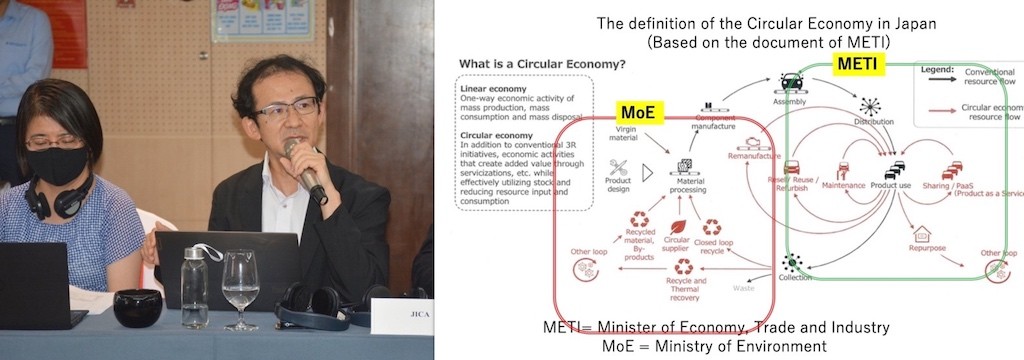 |
| Mr. Adachi Ichiro, JICA’s Environmental Management Advisor presented at the workshop. (Photo: Nguoi Lao Dong) |
Drafting the framework of CE National Action Plan
Regarding CE as an instrument to boost economy, promoting market-oriented and companyʼs voluntarily approach, r-establishing resilient resources circulation systems, consistency with the existing Vietnamese legal systems, the survey suggests that the targets of the plan should be strategically set making sure of the synergy among the associated VN legislations.
The focus areas of the plan should include global trends/agendas: Domestic, regional, and global trends on CE and other global agendas such as climate change, marine plastics, SDGs etc. Incorporating global agendas or challenges into CE NAP can create opportunities for partnership, financing, and cumulative impacts.
The plan makers should use of lessons in reference countries: EU, Japan, and ASEAN countries. Lessons can be drowned from goal and target settings, priority sector determination in particular.
The plan should consider feasibility and adaptability of CE including the government management and financial capacity. Task demarcation and boundary setting are of great importance in realizing CE .
It is suggested to propose a 10 years roadmap in achieving CE that will comprise targets, milestones, and implementation of CE at the short, middle, and long terms. Also, regulatory measures, technical measures, and financial measures are proposed in the CE National Action Plan.
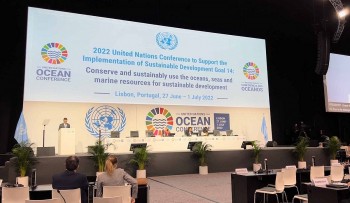 | Vietnam's Strong Commitments on Development of Blue and Sustainable Oceans Vietnamese representatives reaffirmed the nation’s commitments to developing blue and sustainable oceans while attending the UN Ocean Conference (UNOC) held in Lisbon from June 27 ... |
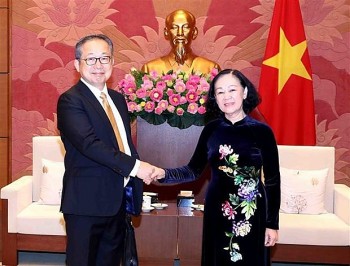 | Promoting Vietnam-Japan Ties through Parliamentary Cooperation The Vietnam-Japan strategic partnership is promoted through the parliamentary channel |
 | Vietnamese Premium Agriculture Products Enter Japanese Market Vietnamese rice and agriculture products are rising stars in Japan, entering hundreds of supermarkets and retail stores in AEON's system across the country. |
Recommended
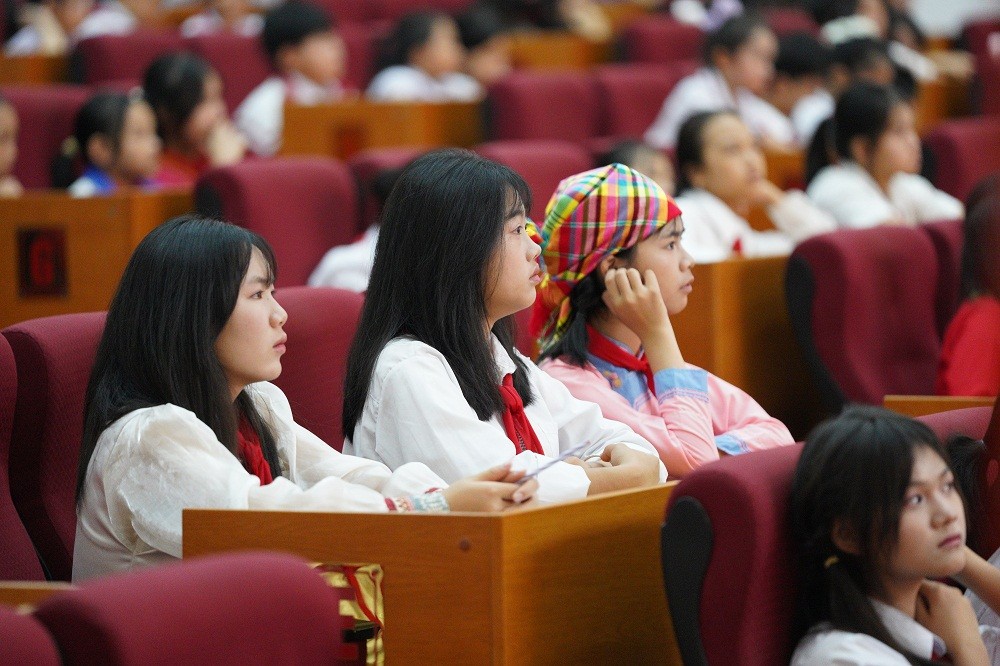 Viet's Home
Viet's Home
Lai Chau National Assembly, People's Council Delegates Hold Dialogue with Children
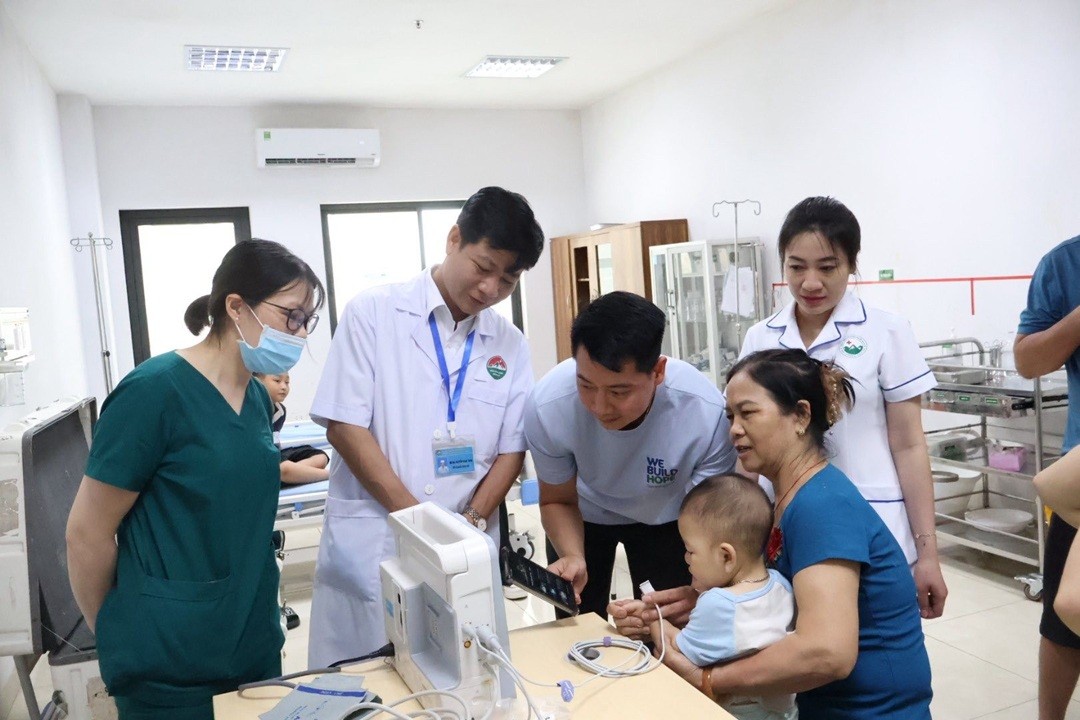 Viet's Home
Viet's Home
24 Children with Disabilities in Northern Provinces Received Free Surgery
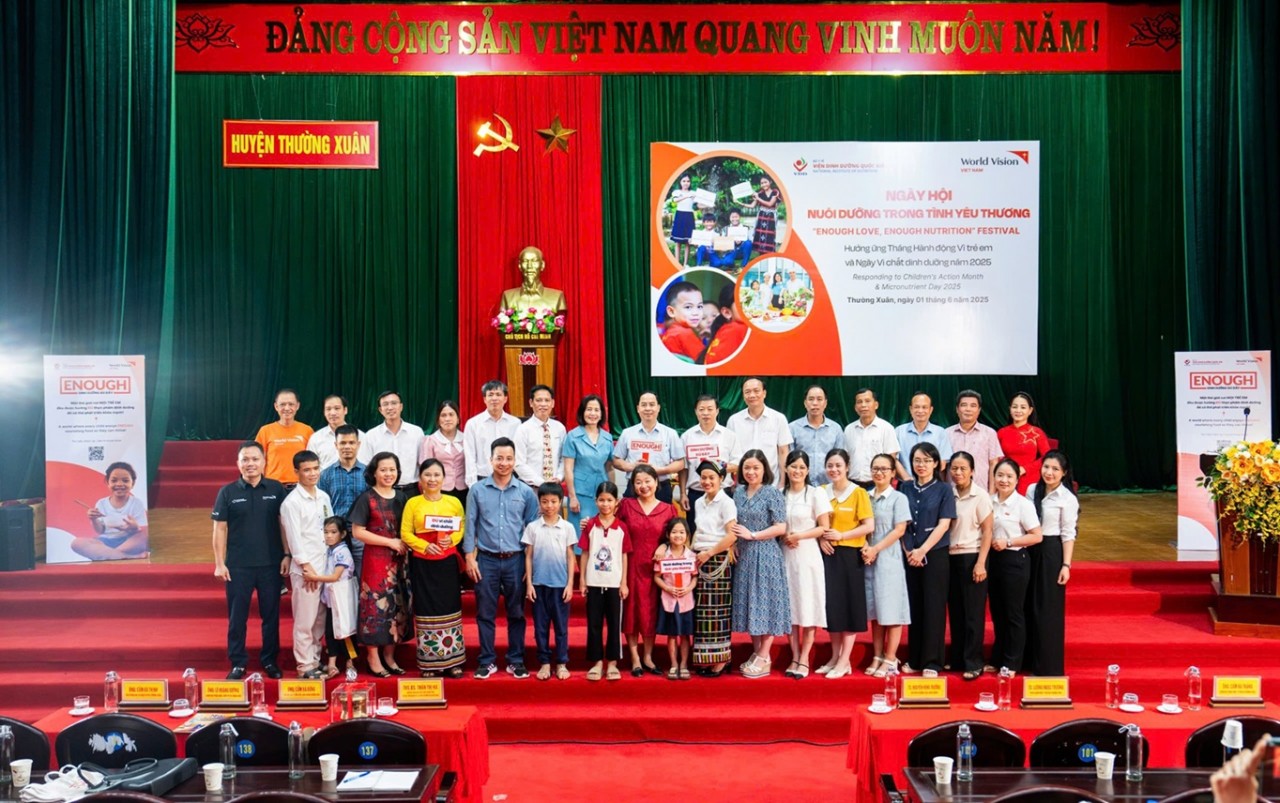 Viet's Home
Viet's Home
World Vision Promotes Comprehensive Nutritional Care for Vietnamese Children
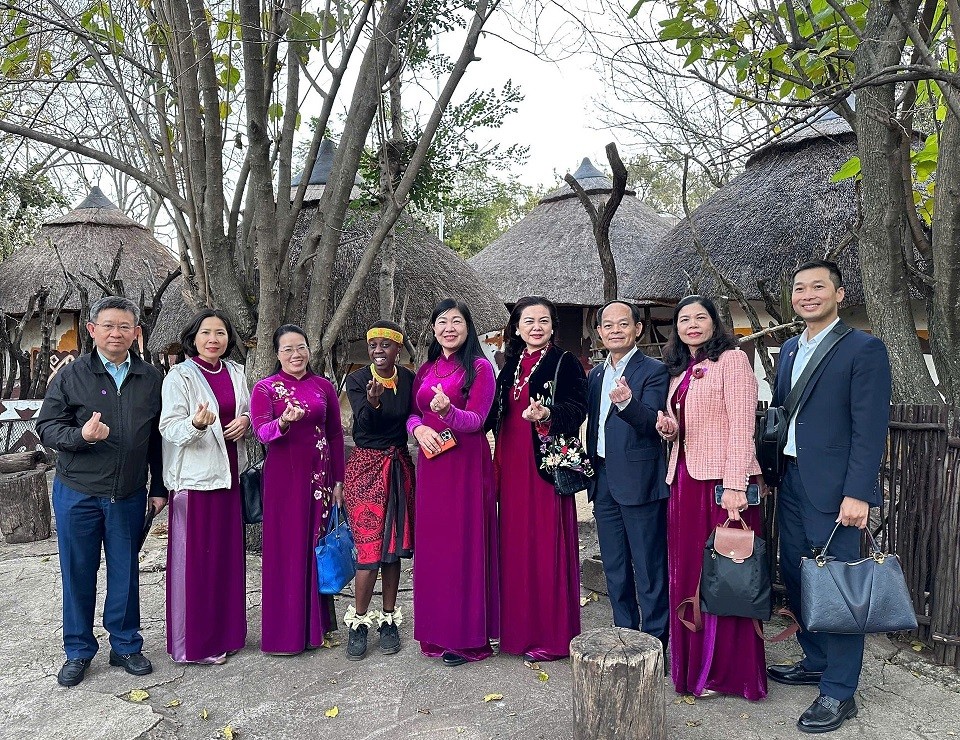 Viet's Home
Viet's Home
Hanoi, South Africa Strengthens People-to-people Exchanges, Expands Multi-sector Cooperation
Popular article
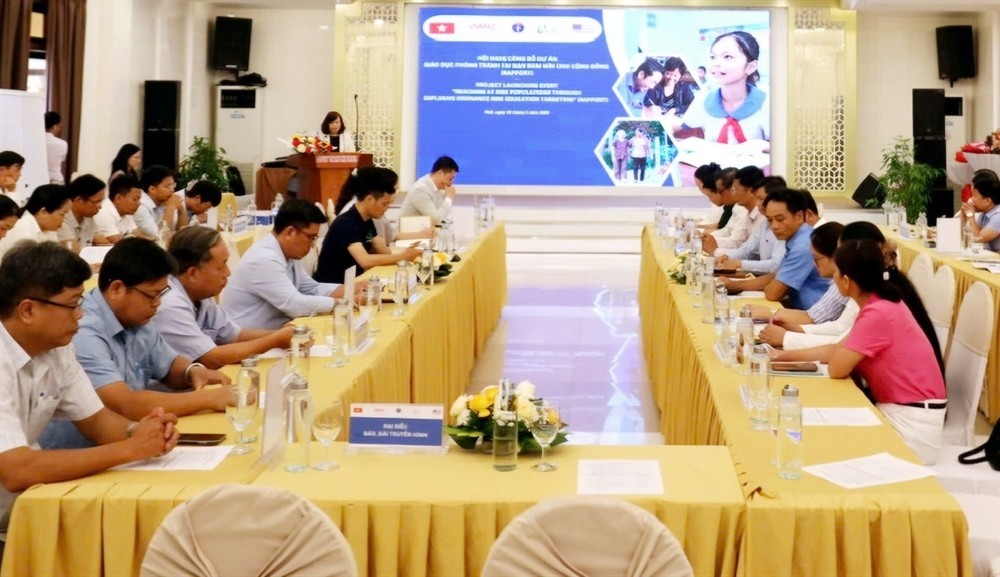 Viet's Home
Viet's Home
Hue City to Raise Awareness on Mine Accident Prevention
 Focus
Focus
Vietnam Leaves Imprints on the World Peacekeeping Map
 Viet's Home
Viet's Home
“Global Vietnamese Singing 2025” - Connecting Hearts Longing for Homeland
 Viet's Home
Viet's Home




